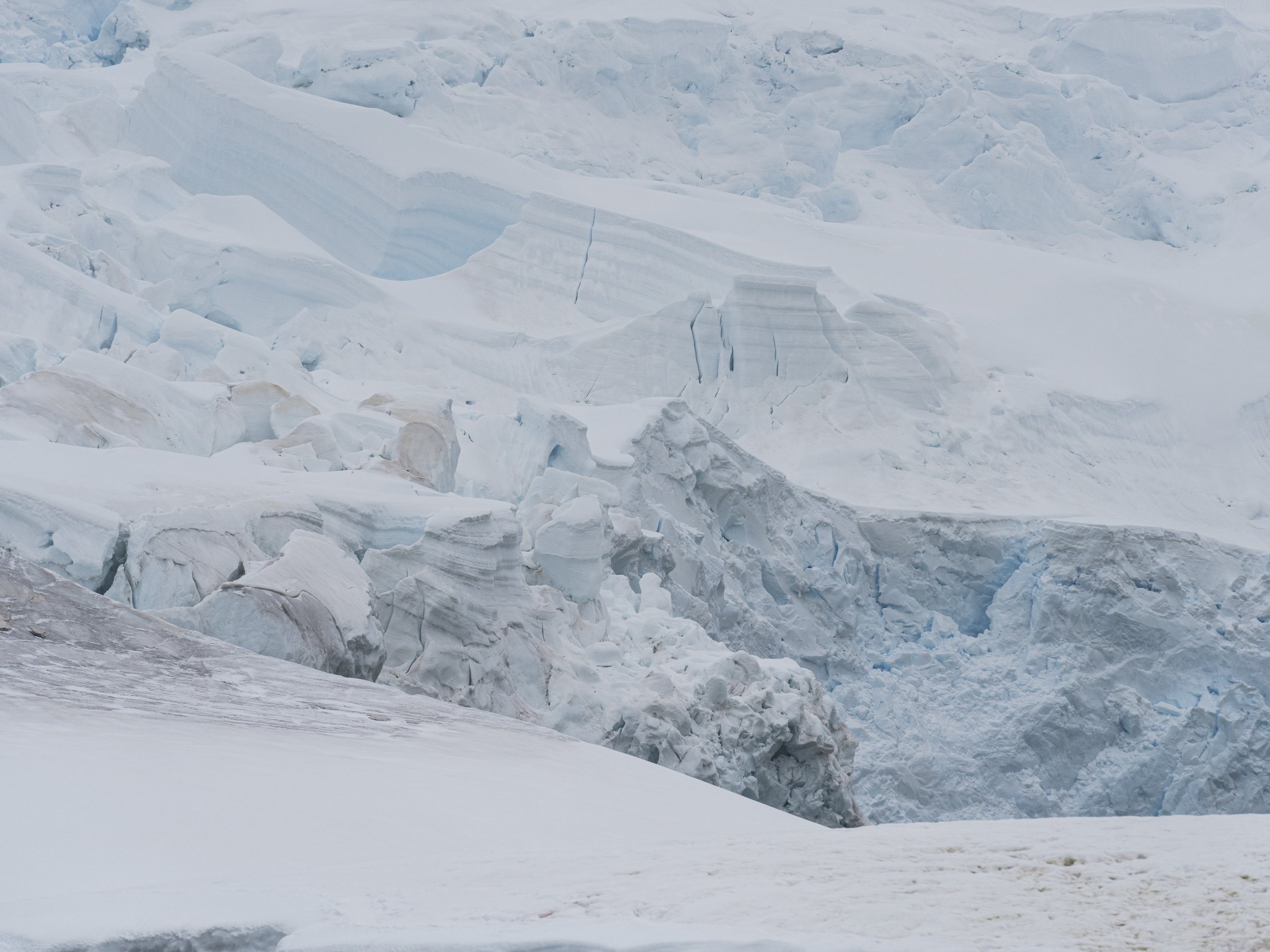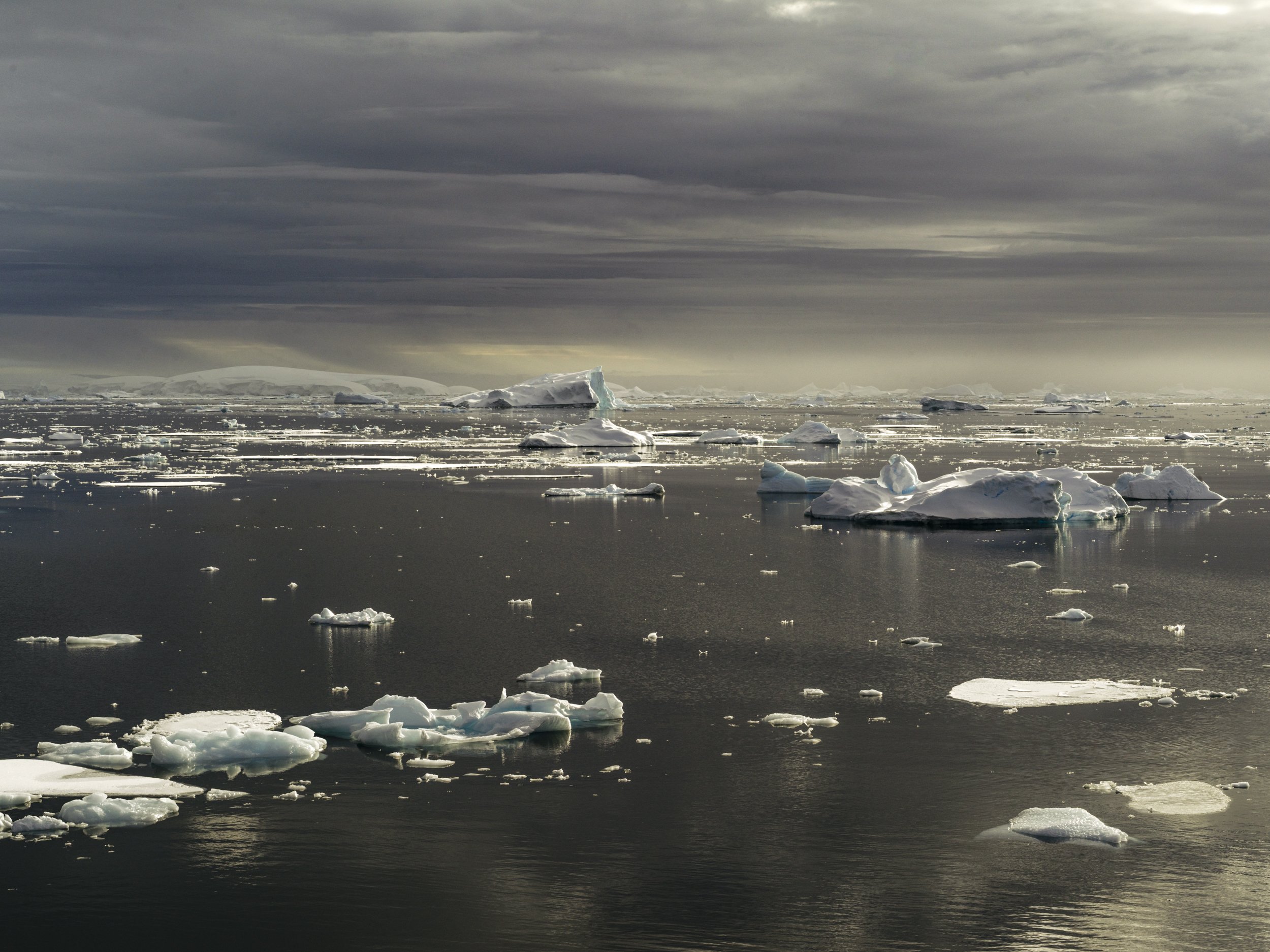MELT: A Strangely Beautiful Interior - The Sustain Set
This SUSTAIN set of images is part of an ongoing project - MELT: A Strangely Beautiful Interior. It contains photographs made in West Antarctica in March 2025, curated for an exhibition at SKAR Image Lab as part of the 2025 Auckland Festival of Photography.
We think of Antarctica and its stories, its beauty, its vast interior and great glaciers, as being distant from us unknown, enormous, imaginative spaces. We think of it as uninhabited, available. But it is only uninhabited if we have a human species-centric view of the world. Antarctica is inhabited with a myriad of courageous resilient species uniquely adapted to their terrains with sophisticated social organisations and communications. We must co-exist with them in the great enterprise of life on Planet Earth. We are co-dependents.
The effects of the Holocene on Earth’s ancient environments, and the consequences that will flow from the collapse of its great ice shelfs; sea level rise, the acidification of our oceans, the extinction of ancient species, are not distant problems. The millions of tonnes of freshwater pouring into the ocean as the ice melts has the capacity to change the environment of the southern ocean and its interaction with all our shores, forever.
The warming of the sea currents flowing under the ice shelfs, overfishing - especially the removal of vast quantities of krill from the food chain that is hastening the extinction of whales and other species that have inhabited those waters for thousands of years - and glacial retreat are happening now and the interaction between the ocean and the melting ice is an irreversible reality; everything is connected.
Italian physicist, Carlo Rovelli says that we make the mistake of thinking we are different from the world around us, that we look at it from the outside. We forget that we are like the things we look at and every investigation of things ends up invoking ourselves. We are processes driven by the same stars; we are water, we are Antarctica. What we will lose if we are unable to sustain a symbiotic relationship with our world, if we lose Antarctica and the wild places on our planet is ourselves, and wonder - wonder at the limits of the visible world.
The on-going MELT project is also part of the Re.Volve/Nature (Mother) project initiated by the Centre for Ecological Philosophy, London - building a shared, living global Atlas grounded in care, collaboration and long-term ecological thinking.
Prints from this SUSTAIN set of images are available for sale at https://www.skarimagelab.co.nz/collections/wendy-brandon







